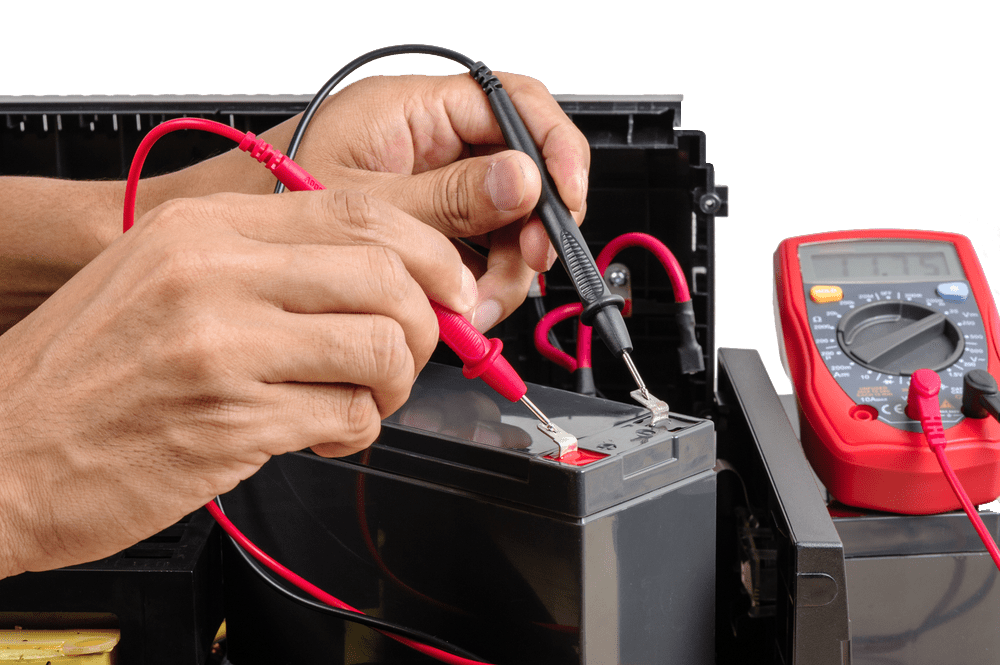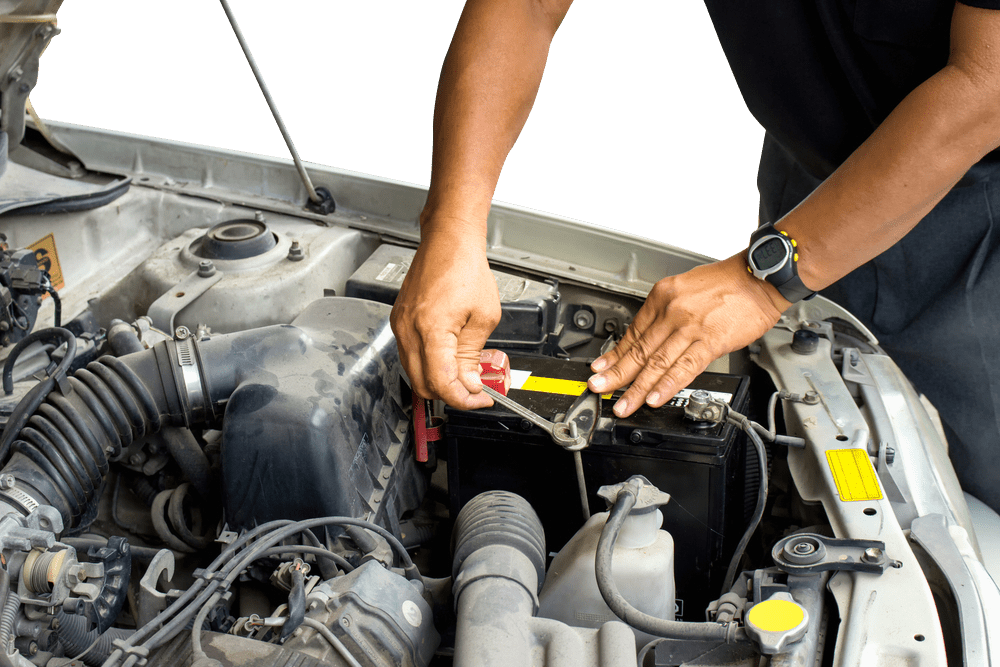- 5 Feb 2025
Will a new car battery improve performance?

When it comes to vehicle maintenance, a common question that arises among car owners is: Will a new car battery improve performance? The car battery is often overlooked until it fails, but understanding its role can highlight how a new car battery can significantly enhance your vehicle’s overall performance. In this article, we’ll delve into how a car battery improves performance, the signs that indicate you may need a replacement and the benefits of installing a new one.
Understanding Car Battery Performance
Before exploring whether a new car battery can improve performance, it’s essential to understand the car battery’s performance in your vehicle’s ecosystem. The battery is not just responsible for starting your car; it powers all the electrical components, from headlights to infotainment systems. A healthy battery ensures that these systems function optimally.
The Role of the Car Battery
The car battery provides the electrical current necessary to power the ignition system and the starter motor. It also stabilizes the voltage to keep your engine running. Without a functioning battery, your car simply won’t start, and degraded battery performance can lead to various issues.
Signs Your Car Battery Is Affecting Performance
Recognizing the signs of a failing battery can help you determine if a new car battery could improve performance.
Slow Engine Crank
One of the most apparent symptoms of a weak battery is a slow engine crank. If your engine takes longer to start or the cranking sound is sluggish, it’s a sign that your car battery performance is declining.
Dimming Lights and Electrical Issues
A failing car battery can’t adequately power the electrical components. You might notice dimming headlights, flickering dashboard lights, or malfunctioning electronic accessories.
Warning Lights
Modern cars often have a battery warning light on the dashboard. If this light illuminates, it indicates a problem with the car battery or the charging system.
Old Age
Car batteries typically last between three to five years. If your battery is within this age range and showing signs of weakness, it might be time for a new car battery.
How a New Car Battery Improves Performance
Installing a new car battery can lead to noticeable improvements in your vehicle’s performance. Here’s how:
Enhanced Starting Power
A new car battery provides maximum starting power, ensuring your engine starts quickly and reliably. This improvement is especially significant in extreme temperatures, where battery efficiency can drop.
Optimal Electrical Component Functionality
With a new battery, all electrical systems receive the necessary power. This means brighter headlights, responsive power windows, and a fully functional infotainment system. Overall, the car battery improves the performance of all electronic components.
Better Fuel Efficiency
While it might seem unrelated, a strong battery can contribute to better fuel efficiency. Modern engines rely heavily on electronic components for fuel injection and engine timing. A weak battery can cause these systems to operate inefficiently, leading to increased fuel consumption.
Reduced Strain on the Alternator
A failing battery puts extra strain on the alternator as it tries to compensate for the lack of power. A new car battery eases this burden, potentially extending the life of your alternator and improving overall car battery performance.
The Impact on Vehicle Performance
While a new car battery won’t increase horsepower, it ensures that your car’s electronic management systems function correctly, which can indirectly improve performance.

Smooth Engine Operation
Engine control units (ECUs) rely on a stable power supply to manage engine functions effectively. A healthy car battery ensures the ECU operates without glitches, leading to smoother acceleration and consistent engine performance.
Reliable Safety Features
Modern cars come equipped with various safety features like anti-lock braking systems (ABS) and electronic stability control (ESC). These systems require a steady power supply from the car battery to function correctly, impacting overall vehicle safety and performance.
When a New Car Battery Might Not Improve Performance
It’s important to note that while a new car battery can improve performance in several areas, it won’t fix all car problems.
Mechanical Issues Remain Unaffected
Problems like engine misfires, transmission issues, or suspension problems are mechanical and won’t be resolved by replacing the car battery.
Charging System Problems
If the issue lies within the charging system, such as a faulty alternator or corroded wiring, a new car battery won’t resolve the underlying problem. It’s crucial to diagnose the issue accurately before replacing the battery.
Tips to Maintain Car Battery Performance
To get the most out of your car battery and maintain optimal performance, consider these maintenance tips:
Regular Inspections
Check your battery regularly for signs of wear, corrosion, or damage. Ensure the connections are tight and clean.
Avoid Short Trips
Frequent short trips can prevent the car battery from fully charging. Try combining errands to allow the battery to recharge properly during longer drives.
Turn Off Electronics When Not in Use
Leaving headlights or interior lights on when the engine is off can drain the car battery. Ensure all electronics are turned off when exiting the vehicle.
Extreme Temperature Care
Both hot and cold temperatures can affect car battery performance. In extreme weather conditions, park your car in a garage or shaded area when possible.
Choosing the Right New Car Battery
Selecting the appropriate new car battery is essential to ensure it meets your vehicle’s requirements.
Consider the Battery Type
There are different types of car batteries, such as lead-acid, AGM (Absorbent Glass Mat), and lithium-ion. Consult your vehicle’s manual or a professional mechanic to determine the best type for your car.
Verify the Specifications
Ensure the new car battery matches the size, voltage, and capacity specifications of your vehicle. An incorrect battery can lead to suboptimal performance or damage to your car’s electrical system.
Look for Quality Brands
Investing in a reputable brand can offer better reliability and longer lifespan, contributing to sustained car battery performance.
Professional Installation vs. DIY
Deciding between professional installation and doing it yourself depends on your comfort level and experience.
Professional Installation
Having a professional install your new car battery ensures it’s done correctly. Professionals can also check for other issues that might affect car battery performance.
DIY Installation
If you’re experienced with car maintenance, you can replace the battery yourself. Make sure to follow safety precautions and dispose of the old battery properly.
Conclusion: A New Car Battery Can Improve Performance
So, will a new car battery improve performance? The answer is yes. A new car battery can significantly improve performance by providing reliable starting power, optimizing electrical components, enhancing fuel efficiency, and reducing strain on the alternator. While it won’t fix mechanical issues, ensuring your car battery performance is at its peak is essential for the overall health and efficiency of your vehicle.
By recognizing the signs of a failing battery and understanding the benefits of a replacement, you can make informed decisions that enhance your driving experience. Remember to maintain your car battery properly to prolong its life and ensure consistent performance. If you’re experiencing electrical issues or it’s been a few years since your last battery change, consider investing in a new car battery to keep your car running smoothly.
Incorporating these practices will not only improve performance but also provide peace of mind knowing that your vehicle is reliable and efficient. Keep your car battery performance in check, and you’ll enjoy a better driving experience every time you get behind the wheel.











